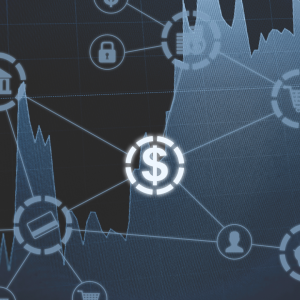The Middle East’s fintech sector is experiencing rapid growth, fueled by a young, tech-savvy population, increasing smartphone penetration and government initiatives to diversify economies away from oil and gas. This surge in innovation and investment has created an increasing demand for commercial due diligence services (CDD), which play a crucial role in assessing ventures’ viability and potential risks before investment decisions are made.
I will discuss below my experience working in the MENA fintech space, highlighting a case study demonstrating the growing importance of commercial due diligence services in this dynamic and evolving market. I will start by defining the process then elaborate with a business case that was completed in the Omani market. Let’s dive in.
Table of Contents
What is commercial due diligence?
The startup scene, particularly in fintech, is full of bright minds with creative ideas. However, some of these young guns lack experience with the processes involved in finding investment. That’s why, for the benefit of those outside the private equity game, I’ll begin with the basics: what is commercial due diligence?
Commercial due diligence is a critical process that needs to be completed before a business transaction, such as an investment or acquisition. It involves thoroughly investigating and analysing a company’s commercial viability and potential risks. CDD goes beyond the financial statements, delving into the company’s market position, competitive landscape, growth prospects, customer base, and overall business strategy.
The commercial due diligence process usually tackles the following:
- Market: Size, growth, trends and competition.
- Positioning: Unique value proposition and competitive advantages.
- Customers: Base, behaviour, satisfaction and retention.
- Financials: Historical performance and future projections.
- Operations: Supply chain, manufacturing, distribution and technology.
- Management: Experience, skills and track record.
- Regulatory environment: Compliance with regulations.
By conducting CDD, investors can gain a comprehensive understanding of a target company’s strengths, weaknesses, opportunities and threats. This information is crucial for making informed investment decisions, negotiating favourable terms, and developing effective post-transaction integration plans. It’s a critical process that requires a well-organised and coordinated approach. This is why it is very common for an investor or company to contract external commercial due diligence services, whether it be a whole team or a selection of profiles headed up by a dedicated CDD consultant.
What are the typical organisational requirements for commercial due diligence?
It’s crucial to remember that commercial due diligence is not a one-size-fits-all process. The specific scope and depth of the process should be tailored to the investor’s unique needs, as well as the target company’s specific characteristics and stage of development. This is why, especially in the startup arena, it’s more than likely that they’ll seek external commercial due diligence services with industry-specific experience.
The first step in the CDD process is assembling a dedicated team with expertise in strategy, finance, legal matters, operations, and market analysis. This cross-functional team should have clearly defined roles and responsibilities, and a Project Manager should oversee the process to ensure smooth coordination and implementation.
Before diving into the process, it’s crucial to establish a clear scope and objectives for the due diligence. This involves outlining the key focus areas and defining the desired outcomes, such as identifying potential risks or validating financial projections. A comprehensive due diligence checklist, tailored to the specific industry and transaction type, is then used to guide the process.
The due diligence team needs access to relevant information to conduct a thorough analysis. This includes secure access to the target company’s data room and essential documents, as well as conducting interviews and meetings with key personnel from the company. Access to relevant databases, industry reports, market research, and software tools can also be important to support the due diligence analysis.
A realistic timeline with clear milestones for each stage helps keep the project on track. Regular communication and updates among team members and stakeholders ensure everyone is informed and aligned. Finally, thorough documentation of all findings, including supporting evidence and analysis, is essential for creating a comprehensive due diligence report. This report summarises the key findings, risks and recommendations, providing stakeholders with the information needed to make informed decisions regarding the transaction.
It is important to note that commercial due diligence does not include legal, tax and technical due diligence as these topics are usually tackled by experts in the field and would be part of a broader due diligence exercise. This is usually conducted by the investors in case there is a decision to pursue the investment.
The foundations of this rapid growth market
Now that these essential features have been outlined, let’s refocus on the market in question: the MENA fintech space. CDD is particularly important as the growing number of fintech startups in the region makes it crucial for investors to conduct thorough due diligence to allocate capital to the most promising ventures. But what conditions have created this fertile ground?
As McKinsey highlighted in their 2023 report “Fintech in MENAP: A solid foundation for growth,” the region boasts a large and growing population of young, tech-savvy individuals eager to adopt digital financial services. This demographic advantage, coupled with increasing smartphone penetration, evidenced by GSMA Intelligence data, creates a fertile ground for fintech innovation.
Additionally, several Middle Eastern governments have launched national strategies and initiatives to foster fintech growth and diversify their economies away from oil and gas. Examples include Qatar’s National Fintech Strategy 2023-2027, Saudi Arabia’s Financial Sector Development Program (FSDP), and Bahrain’s FinTech Bay. These initiatives provide regulatory sandboxes, funding programs and other support mechanisms that attract investment and nurture fintech startups.
The need for robust commercial due diligence services becomes increasingly critical as more capital flows into the Middle East’s fintech ecosystem. It safeguards investors, helping them make informed decisions and allocate capital to the most promising ventures in the long run. To illustrate this point, we’ll turn to a case study from my experience in the Omani fintech market.

Case study: Navigating valuation challenges in Oman’s fintech landscape
A prominent investor who expressed interest in a promising fintech startup operating in Oman engaged our commercial due diligence services. The startup had developed an innovative financial product that was gaining traction in the market. The investor had keen interest in injecting equity and finance the company, however, before committing to the investment, he needed to validate the commercial viability of the start up and determine its fair value.
To provide the investor with a comprehensive understanding of the opportunity, we were tasked with conducting a thorough CDD assessment and determining a fair valuation for the startup. This involved a deep dive into the Omani fintech market, a rigorous analysis of the startup’s business model and its financials, and an evaluation of the growth opportunities. It then included a thorough review of the startup’s business plan, scrutinising its financial projections and assessing the associated risks.
The outcome
The CDD process involved a thorough analysis of the market, competition, growth potential and risks to assess the startup’s commercial viability. Based on the findings yielded from our commercial due diligence services, we reviewed the startup’s business plan, scrutinising its financial projections for revenues, costs and profits.
Our assessment revealed a favourable market opportunity for the fintech sector in Oman, characterised by significant growth potential and limited competition. However, we found the startup’s business plan to be considerably aggressive with a very broad market strategy, or better to say, unfocused, leading to an inflated valuation. This was primarily due to unrealistic market share growth assumptions and overly ambitious product and service offerings for a still-young company. Our recommendation was to adopt an alternative investment structure – a convertible loan note (CLN) to address this valuation discrepancy.
Summary of approach
- Comprehensive commercial due diligence services, including market analysis, financials, and risks, were provided.
- Conducted market-based and income-based valuations.
- Proposed and negotiated a convertible loan note (CLN).
The result
Based on our findings, we recommended an alternative investment structure: a CLN. Unlike a traditional equity investment where the investor acquires shares and becomes a shareholder, a CLN allows the investor to lend the startup money with the option to convert that loan into equity at a later date, typically at a discounted rate from a future funding round.
This CLN structure offers several advantages in this case. For the investor, it significantly reduces risk: if the startup underperforms, the investor can choose not to convert the loan into equity and instead recoup their investment with interest. For the startup, the CLN provides immediate access to essential funds without committing to a potentially premature equity valuation. This allows them time to develop their business model further, achieve key milestones, and improve their valuation before an equity investment.
By recommending the CLN, we created a win-win scenario for both parties involved. The investor’s risk was mitigated, while the startup received the necessary funding to fuel its growth. This mutually beneficial solution paved the way for a successful transaction and positioned the startup for future success. The devil’s advocate would say: if an investor decides not to convert his CLN, it means the start up is underperforming and the investor might not be able to get the funds back. Well that is true, however, being a lender gives him the right to reclaim the funds while being a shareholder does not give that right. In cases like these, it is crucial to minimise the risk because a zero risk in a startup does not exist.
Summary of achievements
- Negotiated a convertible loan note (CLN) as a win-win solution.
- Provided investor protection while enabling startup funding.
This case study highlights that commercial due diligence is not just a box-ticking exercise; it’s a strategic tool that can significantly impact the outcome of a fintech investment in the Middle East. By conducting a meticulous CDD assessment and proposing an innovative investment structure, our commercial due diligence services addressed the valuation concerns and paved the way for a successful transaction that benefited both parties.
CDD is indispensable in the Middle East’s fintech revolution
The Middle East’s fintech sector presents investors with a dynamic and promising landscape. Still, it also comes with its own challenges, particularly in valuation and risk assessment. By conducting thorough CDD assessments, investors can gain a comprehensive understanding of a fintech venture’s business model, market potential and financial health, enabling them to make informed decisions and mitigate potential risks.
CDD is not merely a procedural step; it’s a strategic imperative for ensuring informed investment decisions and mitigating risk. As demonstrated in our case study, CDD can bridge the gap between investors and startups, fostering mutually beneficial partnerships that drive innovation and growth in the region’s fintech ecosystem. As the Middle East positions itself as a global tech hub, the demand for robust CDD services will only grow.
Outvise offers access to a network of seasoned freelance commercial due diligence experts with deep knowledge of MENA’s fintech landscape. Outvise experts can give investors the insights and confidence they need to make sound investment decisions in this dynamic and rapidly evolving market. If your company is considering investing in the Middle East’s vibrant fintech sector, get in touch so Outvise can connect you with the region-specific expertise you need.
Karim is an experienced Investment and Strategy Consultant who helps businesses, funds, and individuals make astute strategic and investment decisions. He specialises in market assessment, business planning, valuation, and commercial due diligence, working across various sectors such as fintech, real estate, telecom, and education. Karim is known for building strong client relationships and delivering solutions that foster growth and wealth. He prides himself on his timely and efficient work, and he often identifies promising investment opportunities for his clients.




No comments yet
There are no comments on this post yet.